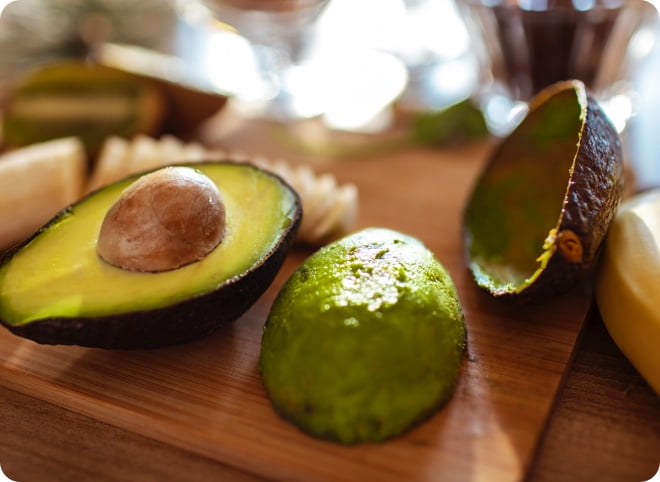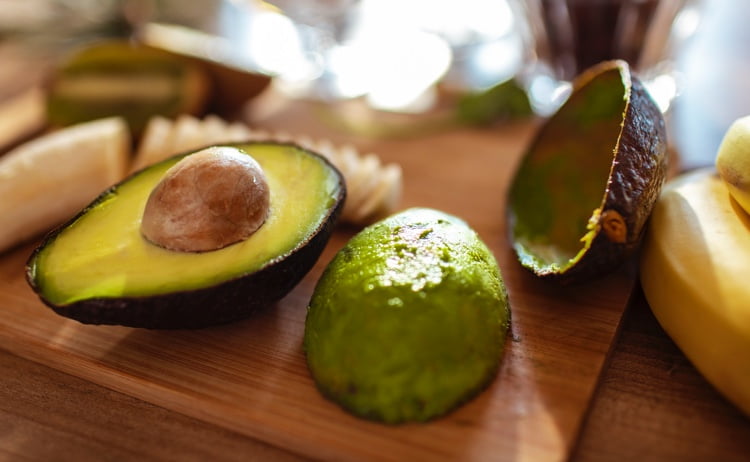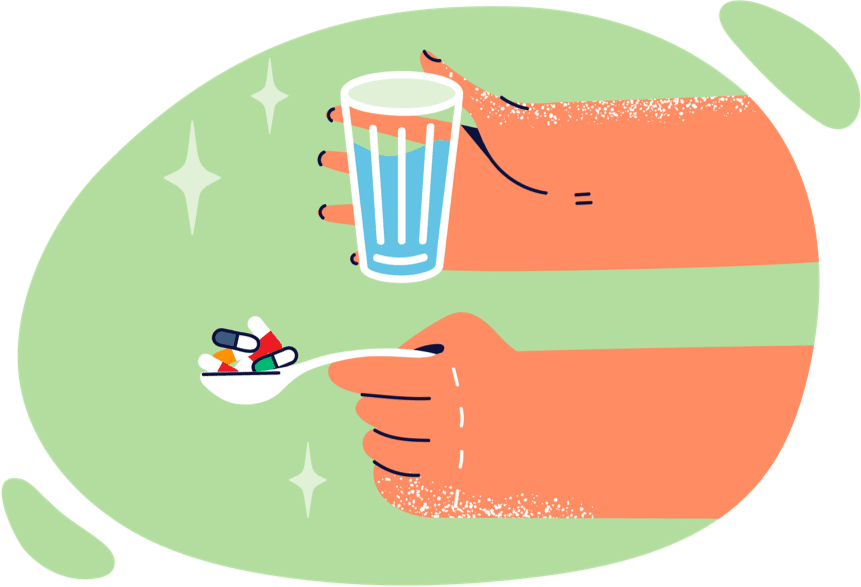Fitting in Fats
Not all fats are created equal
Fats come in all shapes and sizes, but fats in food can be a mix of unsaturated (polyunsaturated or monounsaturated), saturated fatty acids, and trans fats. The amount of each fat varies in proportion depending on what you’re eating.
It's important to work with your care team to determine how to best incorporate fats into your diet.


Amber Dawkins, parent and athlete with CF, preparing a smoothie.
Unsaturated fats unwrapped
Known as the “good” kind of fat, unsaturated fats can lead to a healthy heart as it can decrease bad cholesterol levels and reduce inflammation. A great way to identify unsaturated fat is checking if it is liquid at room temperature, and solid when chilled—just like olive and soybean oil.
There are two main types of unsaturated fats: monounsaturated and polyunsaturated.
Monounsaturated fats: Foods rich in monounsaturated fats include vegetables oils like olive, canola, and sesame oil. Avocados, some nuts and seeds like almonds, pecans, and pumpkin seeds are also great sources. Monounsaturated fats can help decrease bad forms of cholesterol in the body and contain essential nutrients, like the antioxidant vitamin E.
Polyunsaturated fats: While very similar to monounsaturated fats when it comes to health benefits, polyunsaturated fats also provide essential fats your body requires but is unable to produce itself. Polyunsaturated fats include omega-3 fatty acids, which have been shown to be beneficial to people with cystic fibrosis (CF). Omega-3 fatty acids have anti-inflammatory properties, that when balanced with adequate omega-6 fatty acid intake, can improve immune function and reduce inflammation. Fatty fish like salmon and tuna, and some nuts and seeds like walnuts and chia seeds are full of omega-3 fatty acids. You’ll find omega-6 fatty acids in foods such as mayonnaise, sunflower seeds, and vegetable oils.


Foods high in unsaturated fats include:
Vegetable oils such as olive, canola, peanut, soybean, corn, and safflower oils
Avocados and olives
Many nuts and seeds such as almonds, peanuts, walnuts, and sunflower seeds
Peanut butter
Fatty fish such as salmon, mackerel, herring, and trout

Vitamins are Important!
Is an ingredient or food you're eating high in specific vitamins? Pay special attention to vitamins A, D, E, and K. These are fat-soluble vitamins, which means your body needs the presence of fat to absorb and utilize them.
The scoop on saturated fats
When it comes to saturated fats, it’s all about moderation. Eating too many saturated fats may raise bad cholesterol levels, which could lead to an increased risk of heart disease. Usually solid at room temperature, you will find saturated fats in animal-based foods like meat, full-fat dairy, and eggs.
While it may be helpful for some people to limit their saturated fat intake, that doesn’t mean you have to cut it out completely. For example, if you or your loved one struggles to maintain weight or eat enough high-fat foods throughout the day, butter may be a great add-on to foods to increase caloric intake. When in doubt, talk with your care team to find what is best for you.


Foods high in saturated fats include:
-
Fatty beef, chicken with skin, and bacon
-
Butter, cheese, and ice cream
-
Palm oil and coconut oil
Don’t forget about trans fats!
Last but not least, let’s talk about trans fat. Most trans fats are artificially manufactured by hydrogenation, which adds hydrogen to vegetable oil to make them more solid and stable at room temperature. This process prolongs the shelf life of foods in an inexpensive (and sometimes tasty) way.
It’s recommended to keep trans fat consumption as low as possible to minimize the risk of developing heart disease and type 2 diabetes. While there’s no set restriction on trans fat intake for those with cystic fibrosis-related diabetes (CFRD), it is advised to maintain good nutrition which includes limiting trans fats.
Identifying if a food has trans fats can be simple by reading the nutrition label, asking a server at a restaurant or cafe for the nutrition breakdown, or if “partially hydrogenated oils” is listed as an ingredient. To find out more about nutrition labels and how to read them, take a look at our Understanding the Nutrition Label article.


Foods high in trans fats include:
-
Fried foods like doughnuts, french fries, and fried chicken
-
Commercial baked goods like cakes, cookies, and pies
-
Frozen pizza and microwave meals
-
Stick margarines and other butter substitutes

“All fats—and foods!—can be part of a healthy, balanced diet. Try to get as much variety as you can by eating unprocessed, fresh foods whenever possible.”
–Molly Bigford, MS, Registered Dietitian Level 3
Absorption and digestion
Out of all nutrients sources we can consume, fat has the highest amount of calories by volume. This means that for someone with CF, it is important to consume fat at higher than average quantities to help meet daily caloric needs. When someone with CF meets their unique daily energy needs, this can help with excessive inflammation and malabsorption of fat.
For those with pancreatic insufficiency (PI), the amount of fat in their diet can also help care teams determine the amount of enzymes a person's body needs for sufficient nutrient absorption and digestion.
Some CF medications need to be taken with food. By working with your care team you can find foods that you feel good about and enjoy eating on a regular basis.
